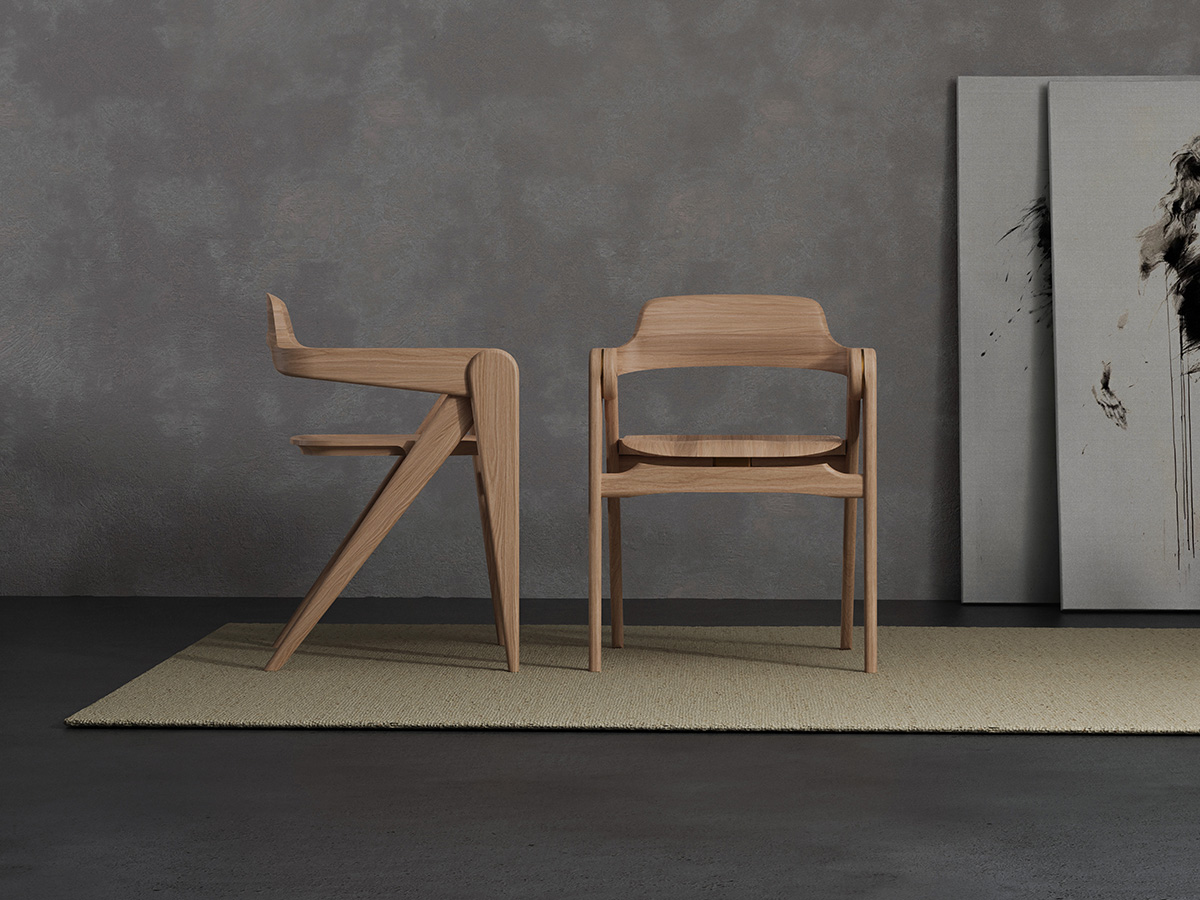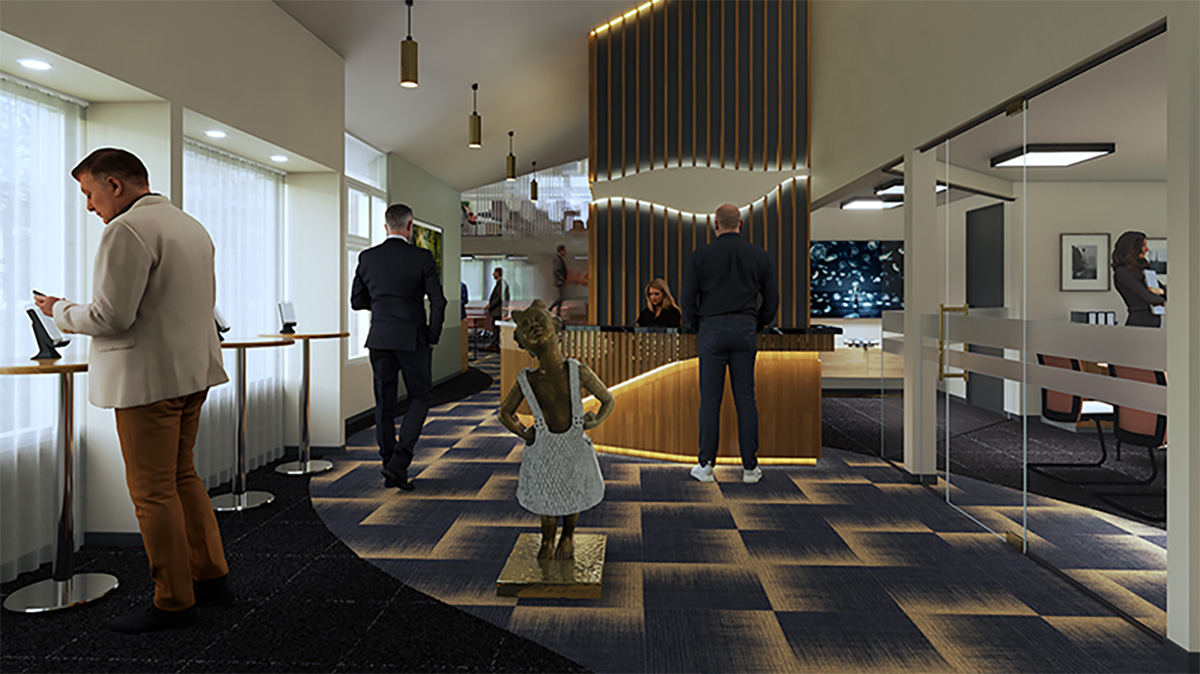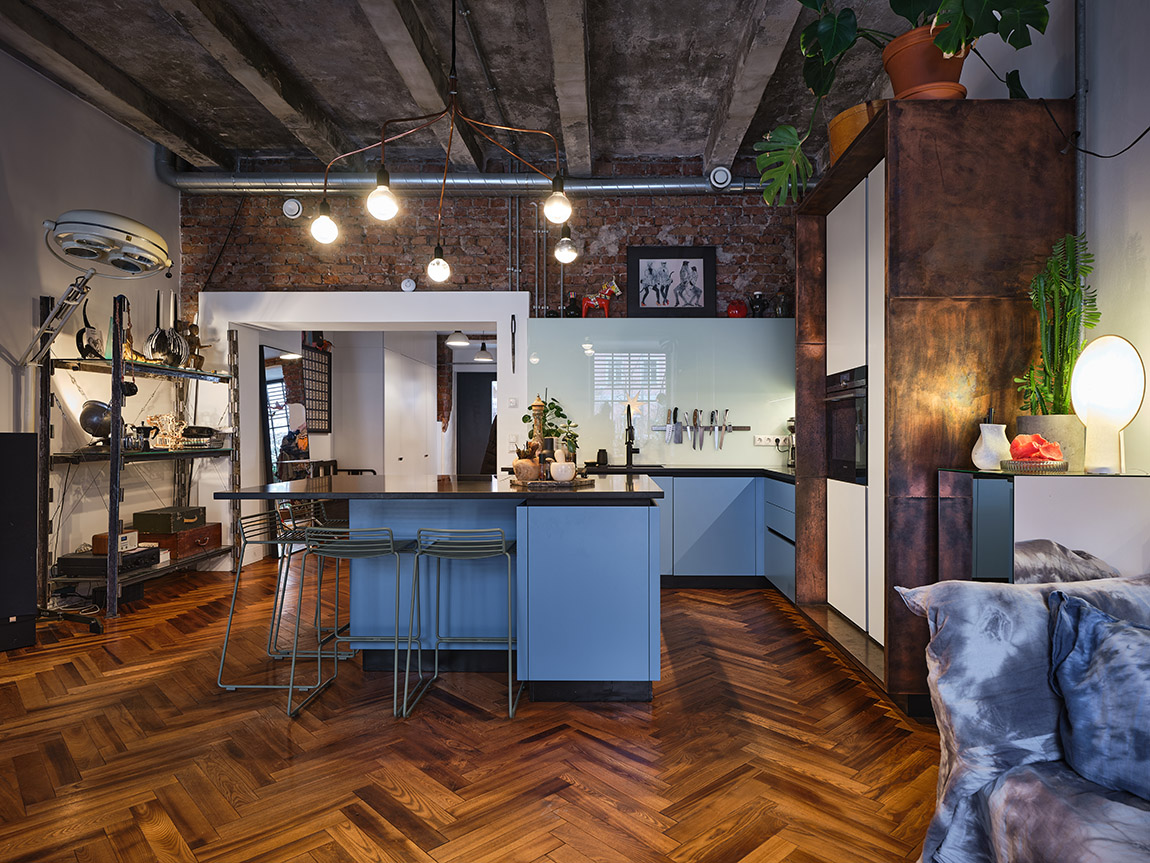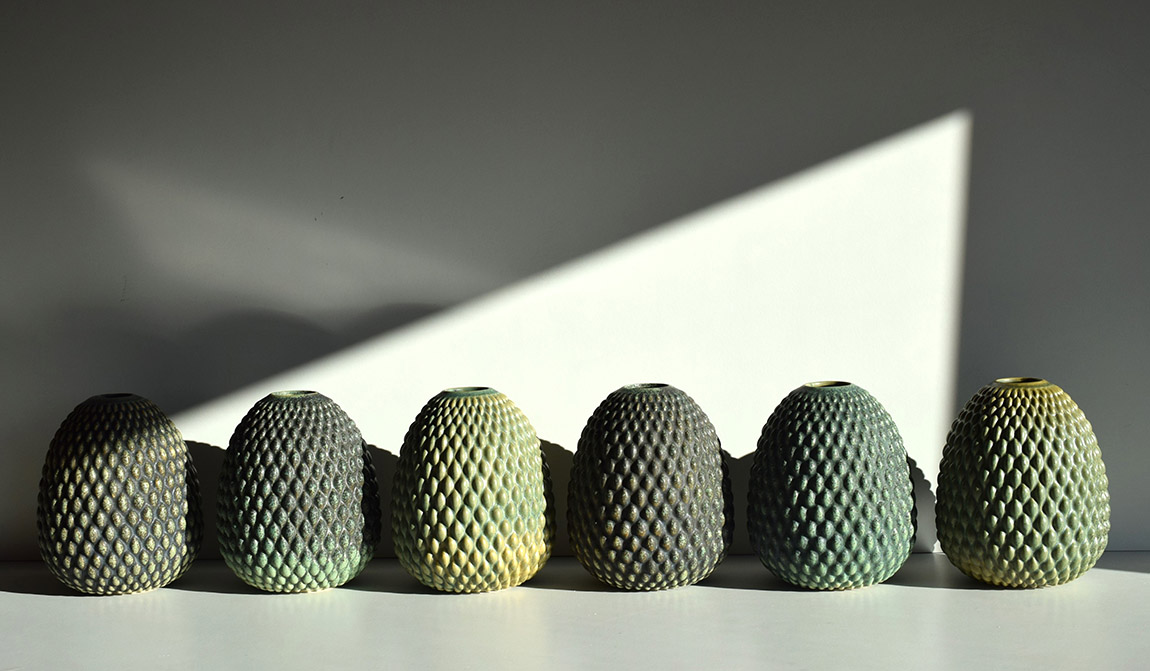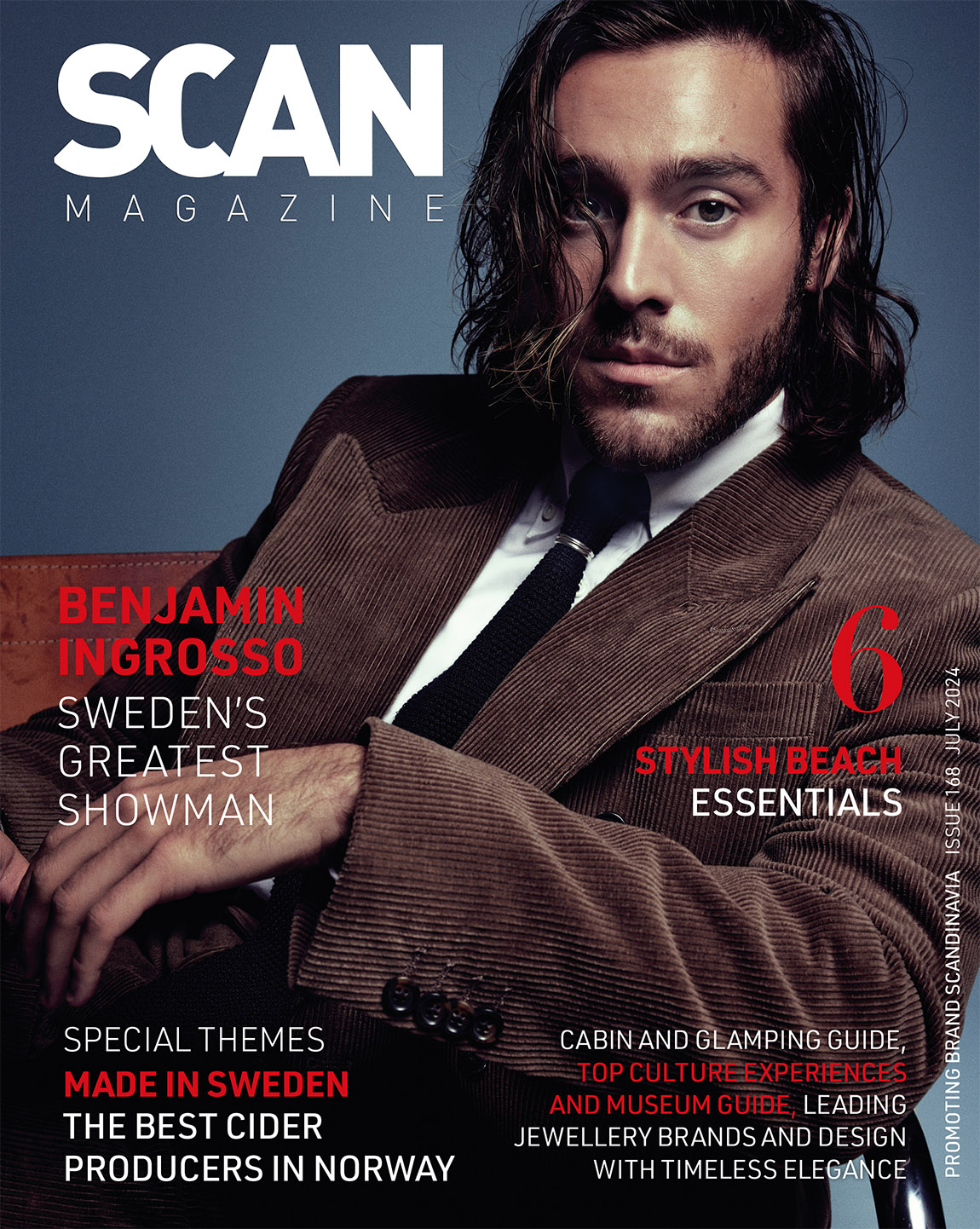Stilling, the bespoke curtain tracks you never knew existed
By Anders Lorenzen
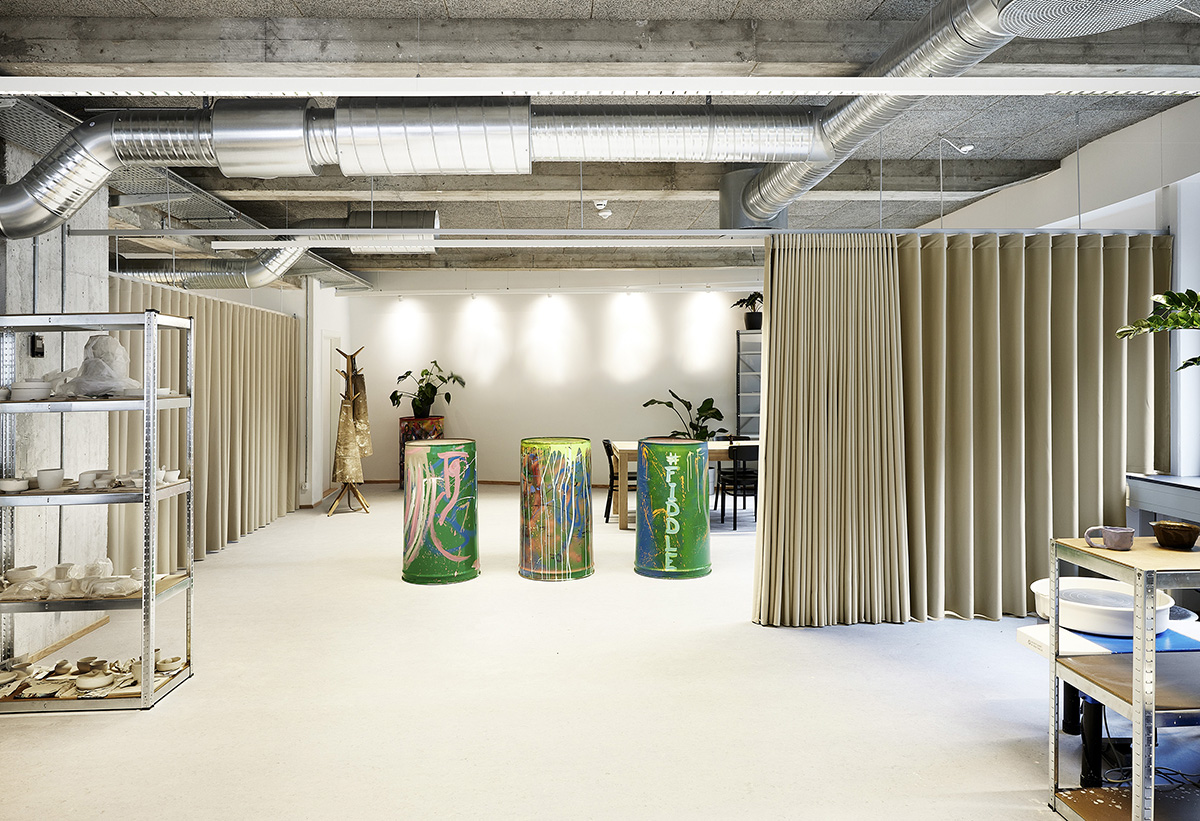
Roomdivision is a popular use of bespoke curtain tracks. Especially for commercial projects, where ceilings are often obstructed by ventilation systems or structures. Here a bespoke system is need to ensure an aesthetic and functional solution. Photo: Pernille Greve
Curtain tracks might not be the first thing that comes to mind when thinking of Danish design, but the story behind Stilling A/S is about much more than just producing curtain tracks. It is about honouring and valuing a craft and about how curtain track installations can play a lead role in interior design and provide the foundation for an ethical approach to employees and the planet.
The way Stilling A/S operates its business goes decidedly against the global manufacturing trend of outsourcing production to Asia. In contrast, Stilling A/S, a family-owned business running on its third generation, does everything by hand, making attention to detail and a respect for handcraft essential.
This approach dates back to the company’s foundation in 1949 when Preben Stilling produced his first Venetian blind, one he developed in his family’s basement and began selling in his spare time. This kickstarted many decades of handcraft traditions on Danish soil. Today, that is an inheritance the company works hard to carefully guide into the future.
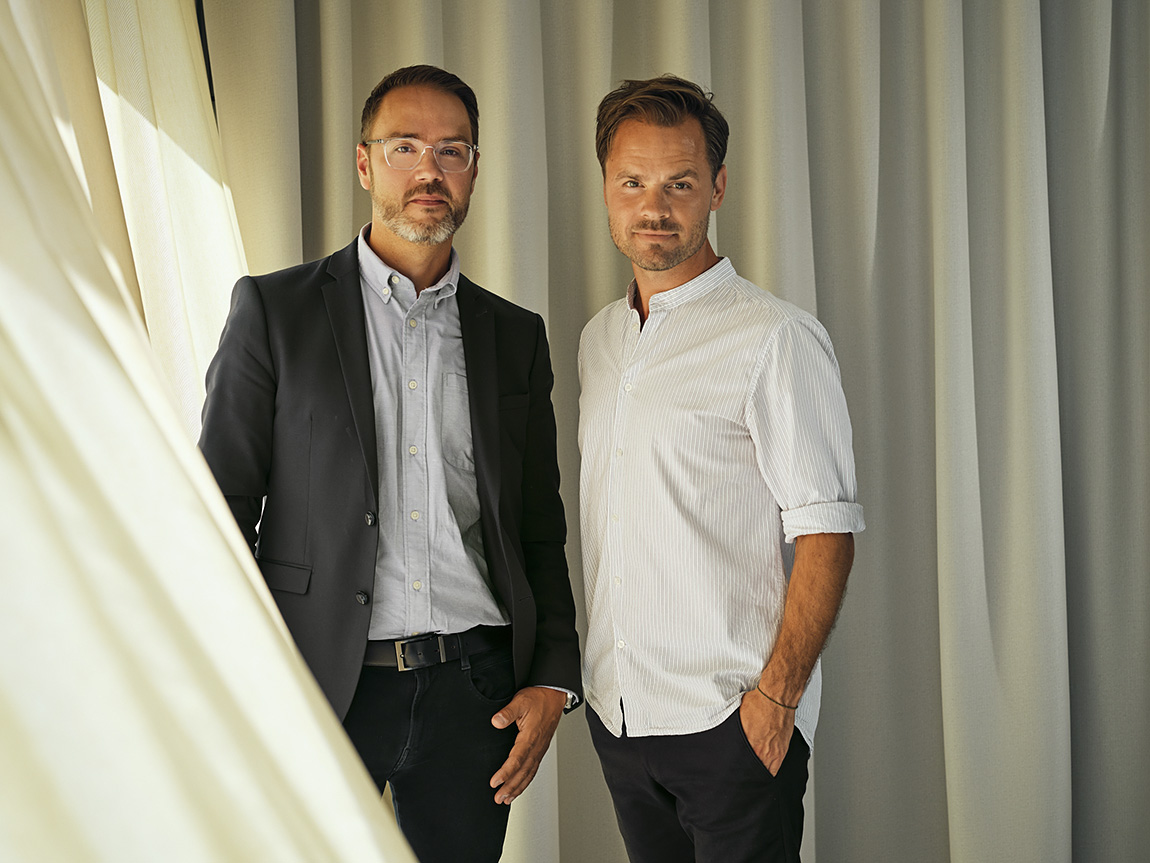
Brothers and third generation owners, Rasmus Stilling-Schütz (left) and Thomas Trends Hansen (right). Based on a legacy from 1949, the brothers have invested heavily in securing the continuation of the heritage crafts needed to produce bespoke items. Photo: Emil Lyders
The product
The bespoke curtain tracks Stilling A/S produces are exported globally and adopted to everything from private homes to bigger projects such as hotels as well as in art installations and scenographies.
Based in Brondby – one of Copenhagen’s suburbs – the company tailors its curtain tracks to a degree that allows them to have a powerful and positive design impact, for instance, they’re used to separate rooms to create flexible spaces and seating.
Through the design and implementation process, employees take great pride in working and collaborating closely with architects. According to Stilling A/S that makes them experts in realising complicated as well as creative solutions using curtain tracks.
As a consequence, Stilling A/S also strives for its products to be used where the aesthetics and design are at full display, where care has been taken to use the product as a key design tool rather than just another component in mass adaptation. It is the focus on attention to detail rather than quantity that is integral to the brand’s DNA.
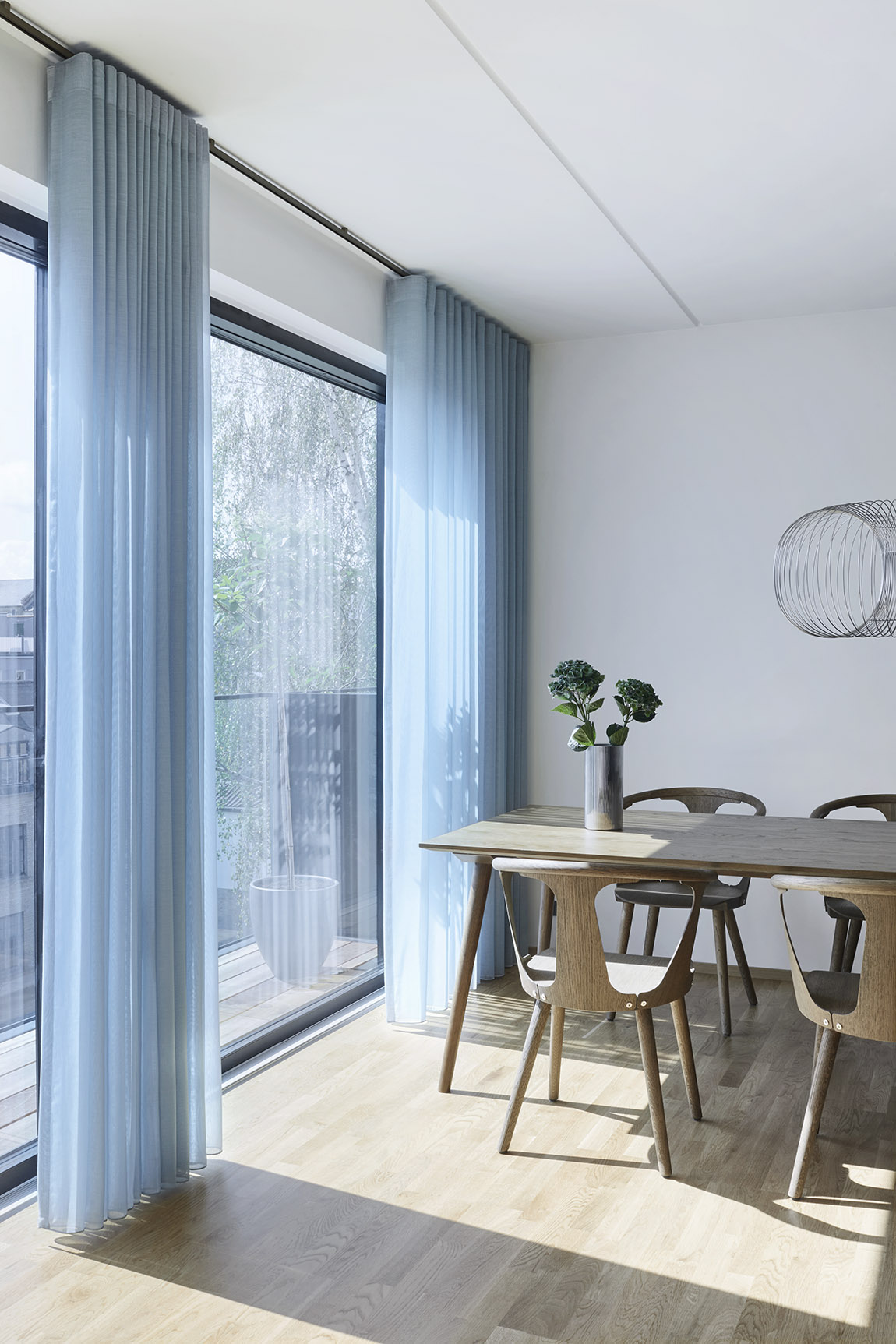
Bespoke Stilling® curtain tracks serving as the perfect compliment to the iceblue fabrics in the home of Danish designer, Majbrit Weidemann.
Humanity at the core of business
In 2018, as the two stepbrothers Rasmus Stillling-Schütz and Thomas Trads Hansen took control of Stilling A/S, the company refocused efforts on highlighting the importance of handcraft as well as creating an atmosphere in which employees could find value in their product and pride in their craft.
To achieve this, they hired a pedagogical assistant specialised in developmental disorders, with the primary task of creating a working environment which was inclusive for people with special needs. Working together with the local council in Brondby, the objective of this initiative was to provide individuals with special needs protection while enabling them to take part in their daily jobs, be trained in the company’s handcraft, and over time establish a successful and meaningful relation to both their work and workplace.
Sustainability and social responsibility as a core strategy
While it has been the norm for some time now for Danish companies to be amongst the world’s leading companies in incorporating sustainability into their operations and business models, Stilling A/S takes this to a whole new level. “When we took over the business in 2018, we were in total agreement that we should do everything we could to continue the inheritance of the tradition-rich craft in the most responsible way for both the environment and the people we are in touch with,” Rasmus Stillling-Schütz and Thomas Trads Hansen, Owner and CCO and CEO respectively at Stilling A/S tell Scan Magazine.
The company has pioneered the usage of reusable materials with much of its plastics produced in Denmark and has undertaken the huge and complicated task of moving its aluminium production to mainly Sweden. Doing so is no mean feat, not only because of the added cost and the pressure of being globally cost-competitive but also because of the fact that the world’s largest aluminium producer, China, in 2022 produced 40 million metric tons compared with Sweden’s 126,000 2019 (the most recent data) – Sweden expects that number to rise in the coming years.
In addition, the company was recently certified as a B-Corp with an impressive score of 89 points, and the ambition does not stop there – the goal is to reach 100 points by 2025. To reach that end, the company is in an intense process of going through all aspects of the business and analysing key responsibilities and initiatives taken to create a positive change for the planet. In essence, a B-Corp certification measures a company’s entire social and environmental impact.
A critical component of the B-Corp certification is also the company’s approach to not only creating optimal working conditions but also to its responsibility to society in the hiring process. As mentioned earlier, the key focus in that regard is to employ people with social and work difficulties, giving them the right tools and working conditions to not only thrive at the company but also develop skills they can take with them for life.
The future
Moving forward Stilling A/S aims to expand its global reach while strengthening its ethical standards to a level where society as a whole can take inspiration from its approach to materials and sustainability. The hope is to prove that even in today’s global economy producing products as locally as possible might not be completely far-fetched, but it requires visionary thinking as well as bravery.
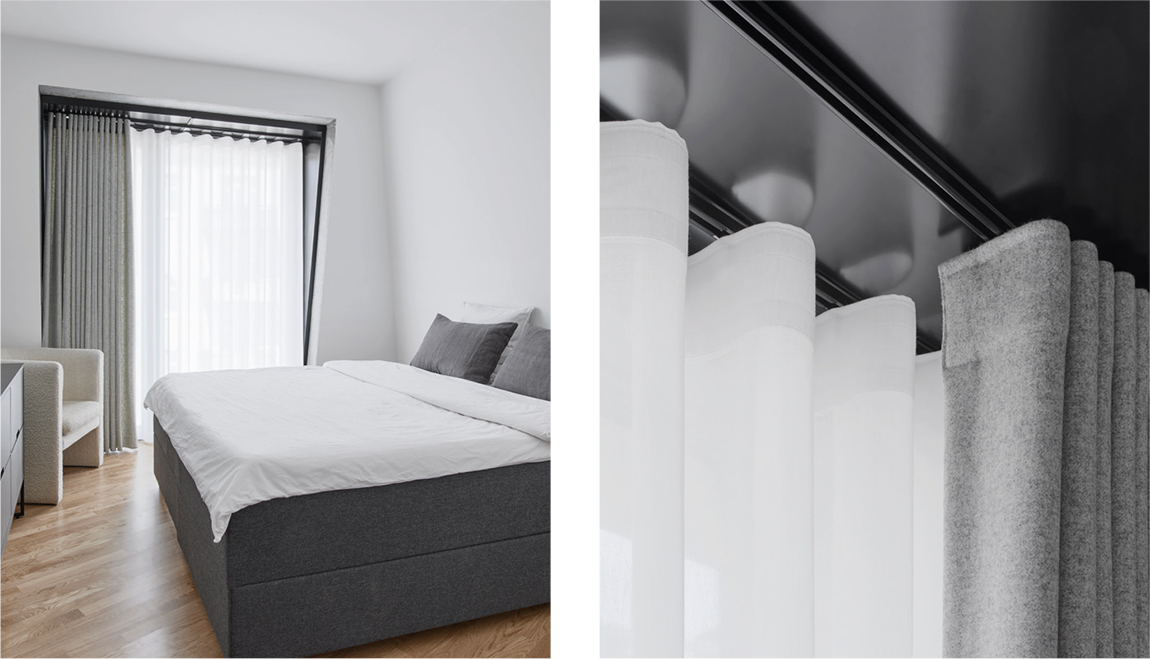
Double-layered ‘hotel’ curtains have long been the favourite of many hospitality projects, where a sheer and a heavy curtain are combined to enable better control of the sunlight. ‘Hotel’ curtains can be achieved with either two separate curtain tracks or a single curtain track with multiple grooves. Right: Stillings ‘Perfect Wave™’ system ensures that every ripple fold on the curtain is evenly sized and spaced out for a perfected look. Many believe that this technology is attributed to the curtain fabric, when instead it is also achieved with the right drapery hardware. Photos: Maja Karen
Web: www.stilling.dk
Subscribe to Our Newsletter
Receive our monthly newsletter by email

